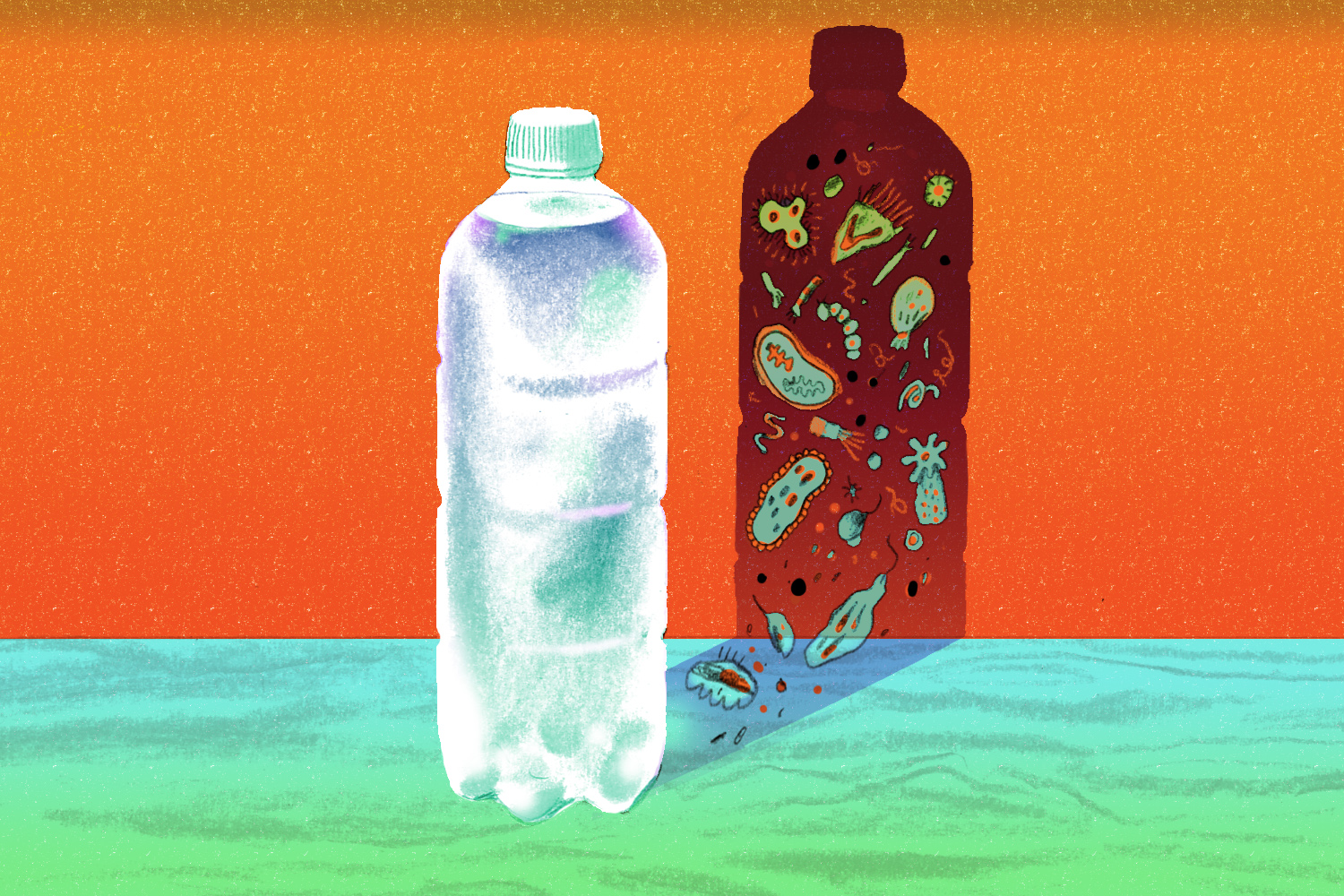
That depends, says Dr. Kellogg Schwab, director of the Johns Hopkins University Water Institute. As soon as you take a sip, your lips and mouth introduce microorganisms into your H2O. Combined with the ambient temperature in your home or office, and sunlight streaming into your windows, those microorganisms could start to multiply pretty quickly, Schwab says.
“If you have clean water in a clean glass, you’re fine for a day or two,” he says, adding that almost all tap water in the U.S. contains chlorine additives that will kill small communities of microorganisms. But if you’ve ever swigged a sip of day-old water from bedside your bed or on your desk and wondered why it tastes funny, that’s because after about 12 hours it goes flat and, as carbon dioxide from the air interacts with the H2O in your glass, it slightly lowering its pH. “But it’s most likely safe to drink,” Schwab adds.
He says reusing the same dirty glass day after day will raise you risk of exposure to some unfriendly bacteria—especially if someone else is sipping from your vessel and mixing his or her mouth microorganisms with yours. But assuming you grab a new cup every few days? “You’re probably not going to have a problem,” Schwab assures, adding that, “This is far from the top of the list of public health concerns.”
One possible exception: Touching the rim of your glass with dirty fingers—especially if you (or whoever unloaded the dishwasher) forgot to wash up after using the bathroom. There are lots of different sickness-causing bacteria in human waste, and if you handle your glass with dirty hands, those bacteria could make their way into your water, Schwab warns.
But what about that plastic water bottle on the floor of your car? Heat and plastic are a bad combination, he stresses. “A chemical called bisphenol-A, or BPA, along with other things used to manufacture plastic can leach into your water if the bottle heats up or sits in the sun,” he explains. BPA is a hormone disruptor that research has tentatively linked to several health hazards, including heart disease and cancer. Schwab says the types of plastic used for bottling water aren’t meant to be washed or refilled, so use them once and recycle them. Or better yet, use refillable containers made of metal or glass.
You Asked: Your Top 10 Health Questions Answered










When it comes to storing water for long periods, the answer is “Yes,” your H2O can certainly become unsafe to drink, says Zane Satterfield, an engineer scientist with the National Environmental Services Center at West Virginia University. “Most experts will tell you tap water has a shelf-life of six months,” Satterfield says. “After that point, the chlorine dissipates to the point that bacteria and algae start to grow.” That growth will speed up if you store your water in a warm or sunny spot—or in a glass container that hasn’t been thoroughly washed or sealed, he adds.
If you’re a doomsday hoarder with giant vats of pre-packaged water in your basement, you should know that will last at least a year. But after 12 months you’re best off swapping out what you have for fresh stores, Satterfield advises. “You’ll see that some of the water will evaporate during that time, which is proof that the plastic isn’t impermeable,” he explains.
If you want to play it safe when it comes to water that’s been stored for long periods, Satterfield says adding a few drops of plain, unscented bleach and waiting 30 minutes will make your water safe to drink. (Specifically, that’s four drops per gallon, he adds.) Good to know in case of an apocalypse—zombie or otherwise.
More Must-Reads From TIME
- The 100 Most Influential People of 2024
- The Revolution of Yulia Navalnaya
- 6 Compliments That Land Every Time
- What's the Deal With the Bitcoin Halving?
- If You're Dating Right Now , You're Brave: Column
- The AI That Could Heal a Divided Internet
- Fallout Is a Brilliant Model for the Future of Video Game Adaptations
- Want Weekly Recs on What to Watch, Read, and More? Sign Up for Worth Your Time
Contact us at letters@time.com